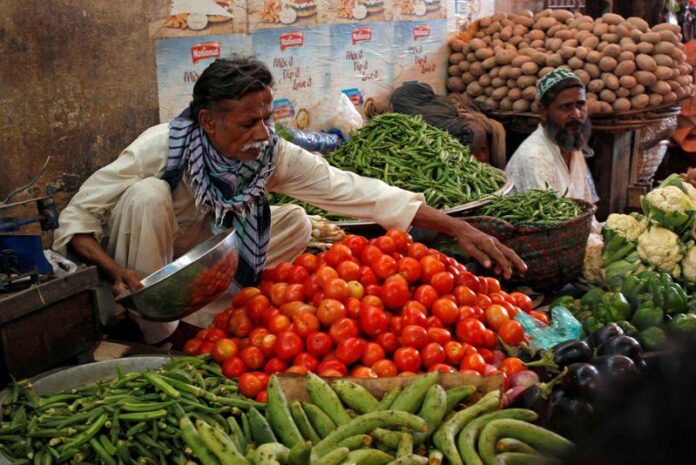The Consumer Price Index (CPI)-based monthly inflation decelerated to 8.3pc in November 2020, from 8.9pc in October mainly due a slight decrease in the prices of perishable items, Pakistan Bureau of Statistics (PBS) reported.
This is the second consecutive month where slight deceleration in inflation was noticed.
The average CPI between July and November eased from last year’s 10.8pc to 8.76pc this year. The average CPI in FY20 rose to 10.74pc, from 6.8pc in the year before — highest since 2011-12 when it stood at 11.01pc.
In urban areas, food items that saw a monthly increase in prices included chicken 21.36pc, tomatoes 15.68pc, potatoes 8.79pc, onions 5.81pc, vegetables 5.63pc, dry fruits 4.38pc, eggs 2.83pc, butter 2.61pc, condiments and spices 2.6pc and fish 1.89pc.
The items whose prices declined in urban areas were wheat flour, down 4.83pc, wheat 4.1pc, pulse moong 3.54pc and pulse gram 1.94pc.
In rural areas, chicken higher by 20.76pc, potatoes 15.8pc, tomatoes 9.29pc, onions 6.56pc, sugar 5.39pc, eggs 5.23pc, condiments and spices 3.05pc and butter 1.46pc.
On the other hand, drag on price levels came from gur 5.06pc, besan 2.28pc, pulse moong 2.26pc, fruits 2.21pc, wheat flour 1.92pc, pulse mash 1.82pc, pulse gram 1.76pc, beans 1.17pc and fish1.12pc.
Meanwhile, non-food inflation in urban centres was recorded at 3.4pc YoY and 0.1pc MoM basis, whereas in rural areas, it rose by 5.5pc and 0.2pc respectively.
The urban consumer price index covers 35 cities and 356 items, while the rural one tracks 27 centres and 244 products. The former grew by 7pc YoY in November whereas the latter jumped by 10.5pc.
Core inflation in urban areas was stagnated at 5.6pc in November at the previous month level. In rural areas, the corresponding eased to 7.4pc from 7.6pc.




